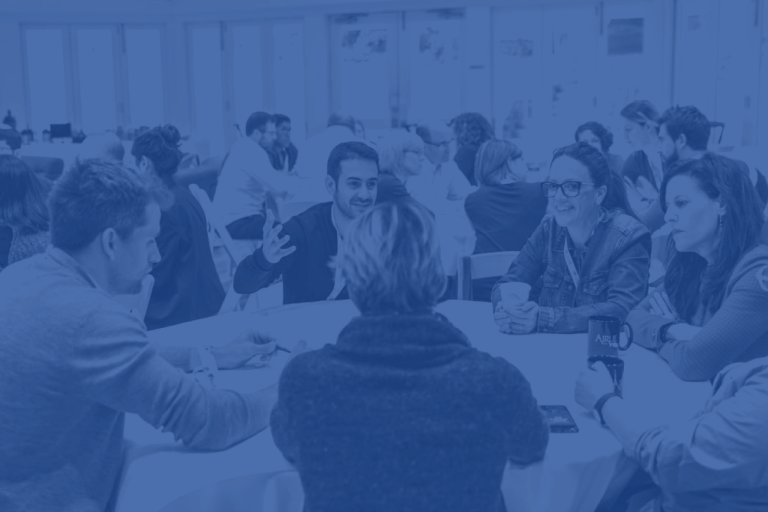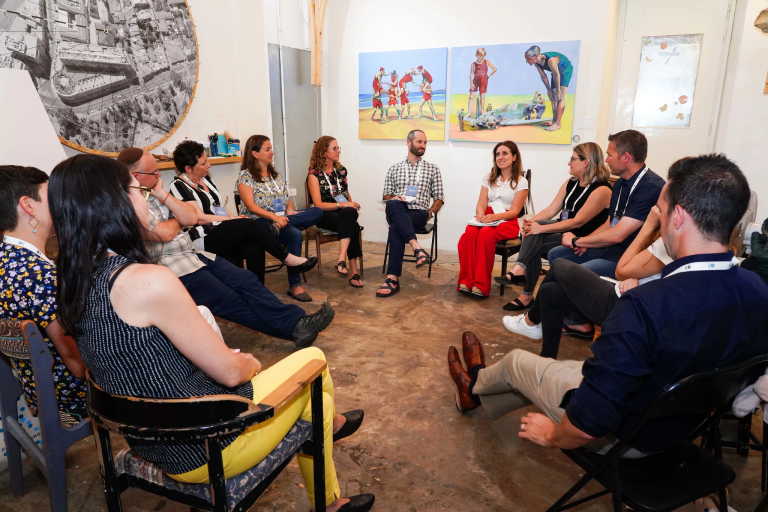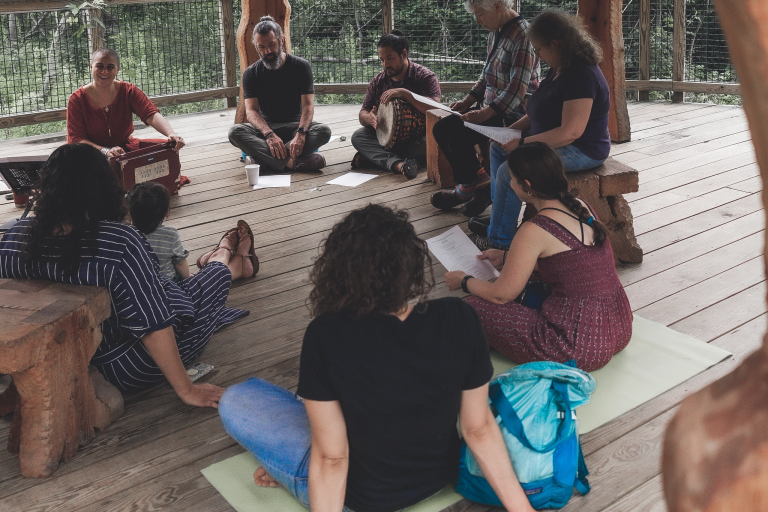By
Published
July 20, 2015
Tags
Over the course of 18 months, 24 outstanding Jewish professionals will engage in a customized professional development journey as part of the Schusterman Fellowship. The Fellows come from across the U.S., Europe, Israel and Australia, and they work inside and outside of the Jewish sector. As part of this blog series, we'll be bringing you short interviews with each of the Fellows in which they'll share a bit about themselves and their vision for the future.
Meet Ari Hart below!

Ari Hart is an orthodox rabbi and leader of multiple initiatives that bring the Jewish community and the world together to make positive social change. He currently serves as Associate Rabbi at the Hebrew Institute of Riverdale and Director of Admissions at Yeshivat Chovevei Torah Rabbinical School. Rabbi Hart co-founded Uri L'Tzedek (Awaken to Justice): The Orthodox Social Justice Movement, the Jewish Muslim Volunteer Alliance, and was the founding director of Or Tzedek, the teen institute for Jewish social justice.
A contributor to The Jerusalem Post, Shma Magazine, Haaretz magazine, the Jewish Daily Forward, and others, he was recently selected by the Jewish Week as one of the 36 "forward-thinking young people who are helping to remake the Jewish community." He received his ordination from Yeshivat Chovevei Torah in New York City. He lives in the Bronx with his better thirds Becca Linden and son Hodi.
1. What are you most excited to gain from the Fellowship? What are you most looking forward to learning?
I am thrilled to have the opportunity to be a part of this fellowship. I've been plowing ahead in various leadership capacities for several years now without a structured, guided way to step back and assess how I want to grow, what areas I need to work on, etc. I'm looking forward to learning about my strengths and weaknesses in a concrete way. I'm also really excited to learn from other leaders going through a similar process. In particular, I am excited to see what will emerge from our group work.
2. "Leadership" is a popular term these days, used in a variety of contexts. Tell us, what does leadership mean to you?
I see leadership as drawing out the latent good in the world to address real problems. It means seeing and naming a need, and then seeing and naming the possible ways of addressing that need, and ultimately helping others respond to that need. There are a variety ways to execute this, certainly it can be done through words, deeds or even art.
3. If you could be compensated for your work with something other than money, what would it be?
I think I would be much happier if, instead of money, I were compensated with food, a simple home, good education for my kids, health care and a small cabin in the woods. True freedom and the opportunity to lead as I truly wanted would be best realized if I knew that my family's basic material and spiritual needs were taken care of.
4. Who is a leader, living or dead, who you admire most and why?
My father. He humbly dedicated his life to serving the sick, poor and incarcerated. I am sure he could have made millions of dollars as a different kind of doctor but, instead, he chose a life of service in public hospitals, jails and clinics. I would describe him as focused, successful, unassuming, loving, fair and efficient. Notably, I have never seen him waste time and he’s always been honest and open about the hard choices he's had to make between family and work life.
5. What is the greatest piece of leadership advice you have received and do you use it?
"Just go, and be there." That's the leadership advice I received from Rabbi Avi Weiss when I started rabbinical school, and over and over again throughout my career, whenever I've used it it's always been beneficial. It's easy to not be there—to not make the schlep to the hospital, the wedding, the rally. But being there when people are in distress, when people are celebrating, when the chips are down—that kind of presence is what strengthens and deepens the relationships that make leadership possible.
The Charles and Lynn Schusterman Family Foundation is proud to empower emerging leaders to explore their values, identity and new ways to strengthen their communities. We believe that as we work together to repair the world, it is important to share our diverse experiences and perspectives along the way. We encourage the expression of personal thoughts and reflections here on the Schusterman blog. Each post reflects solely the opinion of its author and does not necessarily represent the views of the Foundation, its partner organizations or all program participants.




